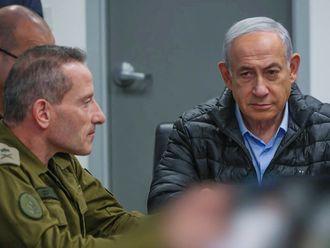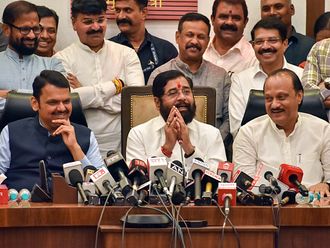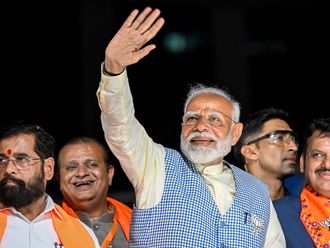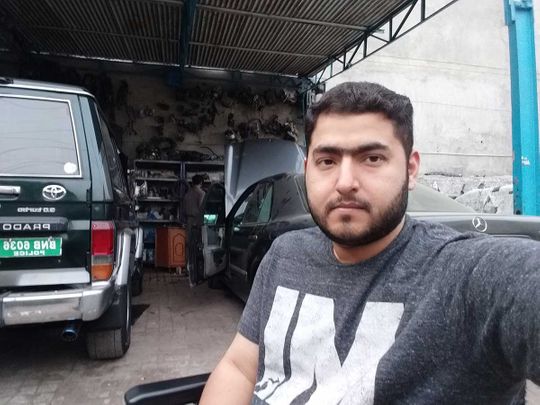
I met Ahmed Tahir almost two years ago. His story, which I wrote and was published in Gulf News, stayed with me, and I shared it with many people. I often wondered how he was doing. His courage was always an inspirational memory. Once or twice a year, on special communal occasions, he texted to wish me.
On May 11, 2013, Ahmed was hit by a car driven by a minor. The boy’s mother was in the passenger seat, giving him a driving lesson. Ahmed’s upper body was crushed under the car, causing a spinal cord injury, compression from C8 to T2. Ahmed was paralysed neck down.
Ahmed was twenty-two.
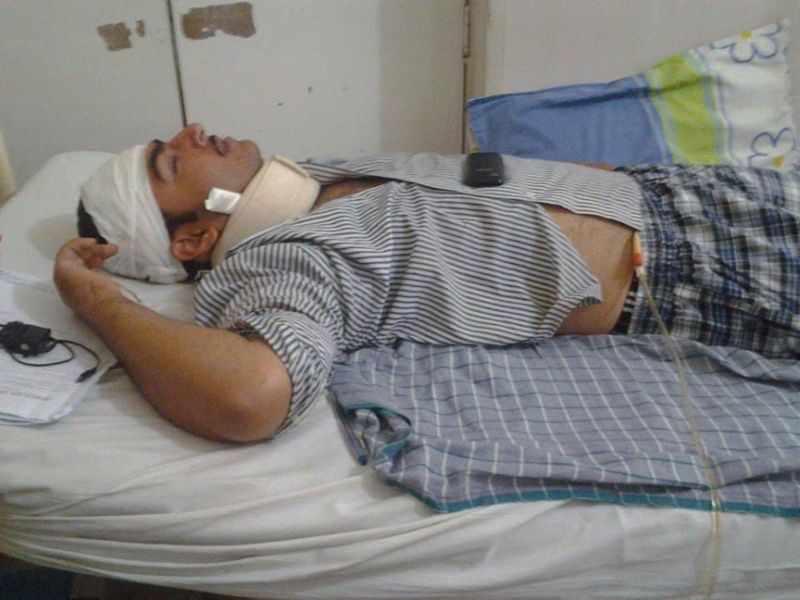
At that time, Ahmed, was working with an IT company in the daytime, was in the first semester of his MBA course in an evening college and was working at a call centre at night.
That night Ahmad went into a store to get something to eat. “I thought Ami would be asleep by the time I got home, she’d have to wake up to make roti for me, and her sleep would be disturbed. I remember I was sitting on my motorbike eating a cake and drinking juice when that car hit me.”
The family responsible for the accident that resulted in Ahmed’s paralysis did not apologize to him or his family. Even once. They did not pay or even offer to pay for his treatment. The police sided, all the way, with the minor driver’s family.
For two and a half years, Ahmed’s paralysed body was his family’s constant concern. His mother and three sisters fed him, his father and mamoo (maternal uncle) changed his diapers and bathed him. His mother sat with him every night, looking at his immobile body, praying. She passed away in February 2015, waiting for a miracle for her son.
As 2015 dragged to a close, Ahmed’s arms developed partial movement, and a few weeks later, he sat in a wheelchair for the first time.
For years, Ahmed’s father was singularly focused on his son’s wellbeing. Years ago, he quit his office job to take care of his hospitalized son, and everything he has done since then is Ahmed-focused. Ahmed’s sisters, the oldest one married in 2018, two getting married in October 2022, are an endless source of comfort and strength for Ahmed.
In 2018, determined to not be a burden on his father, Ahmed started driving for Uber. The car he drove was a specially adapted vehicle for wheelchair users that he partially financed with the help of a close friend. Since 2018, Ahmed, with his meagre resources, is the primary financial provider for his family—house rent, household expenses, sisters’ education, weddings of the younger two.
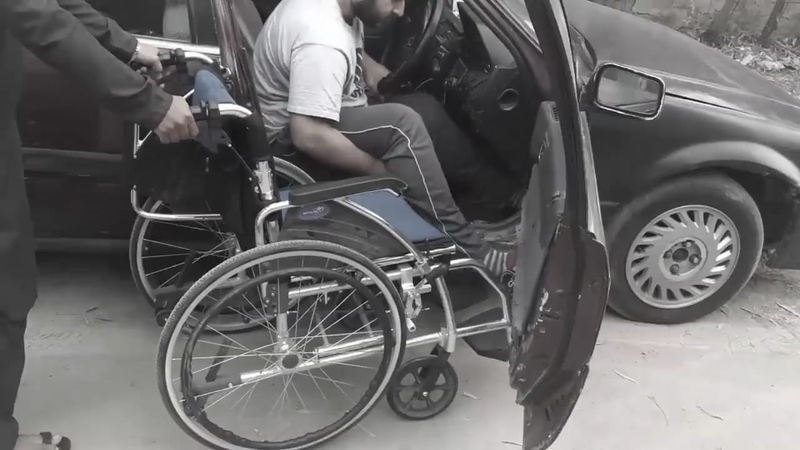
Nine years later, the thirty-one-year-old Ahmed’s upper body and back have developed a bit of strength, allowing him to sit up and recline if there is some form of support behind his back. His body in an upright position, in a wrong posture, develops an intense pain, making sitting an ordeal. Without support he falls, unable to get up on his own. His wheelchair is cushioned to his shoulders level. Even now, Ahmed’s fingers, despite having power for various actions, don’t have a proper firm grip.
Ahmed’s pain is still difficult to control as it erupts in different places—sometimes in the right side, sometimes on the left. His lower body is fully paralysed, his upper body partially paralysed, making it hard to pinpoint the exact location of pain. “My doctor says that there is no treatment to fix the cord compression. The only temporary treatment is physiotherapy and arms and upper body exercises. As long as my muscles remain in a working mode, I’m able to get through my day-to-day life. Using light weights, I do arms and upper body exercises every day.”
When he feels strong, Ahmed still works as an Uber driver.
Ahmed is a hero, a superhero.
For Gulf News, I asked Ahmed Tahir a few questions:
Mehr Tarar: I was a passenger in your Uber on August 14, 2020, and you shared your life story with me in our one-hour journey. What has changed in your life in the last two years?
Ahmed Tahir: Firstly, I’m very grateful to you that you listened to my story and wrote it for Gulf News. Ma’am Maria B [one of Pakistan’s leading fashion designers] read the story, and her NGO Maria B Cares got in touch with me. They arranged physiotherapy sessions for me, and later helped me start a modest general store. Sometimes, I manage the store, but mostly, it’s my father who runs it.
The other change in my life has been that I used to refrain from discussing myself or my life with anyone. Now I understand that if you share your issues with someone, it helps you. Your story might be helpful to someone else, and that is why you shouldn’t feel any awkwardness in sharing your story. It may benefit, in some way, a person who is facing a problem; taking positive points from my life, they may be able to streamline or change something about their life.
What is the most important lesson your disability has taught you?
The biggest lesson my disability has taught me is that an accident does not stop your life. Life continues. If Allah has taken something away from you, you should focus on the things you still have. Value the things you still have. Be thankful to Allah that He has given you so much.
The other thing is I don’t think of myself as a disabled person. I think of myself as a special person because I believe everything in my life is happening in a special way. All my basic actions—getting up, moving, eating, going to washroom, bathing—I’m doing it all in a special way, a way that keeps my life going.
Another thing is feeling depression in disability. If you feel depressed, that is when you have the biggest opportunity to connect yourself to Allah. Devote yourself to Allah’s ibadaat. Read on Islam sent by Allah, recite the Quran, offer namaz, study the hadith of Prophet Mohammad (pbuh), recite the Darood. You will see how every path becomes easy for you. And how Allah will shower you with His blessings.
Beyond the tragedy that happened to you at a very young age, what is it that you would like to be different about your life today?
There are two things: one, your disability has a cure, and two, your disability doesn’t have a cure. If the latter is true, accept it in front of Allah. Say that you are content in Allah’s will and keep moving forward. Do your work. What I’m trying to do is work towards my goals. I wish to have a small house of my own. I wish to have a good job in audit and accounts. I wish to have a small car of my own for my family and to drive on Uber or Careem.
You should always have multiple options so that the cycle of your life doesn’t stop.
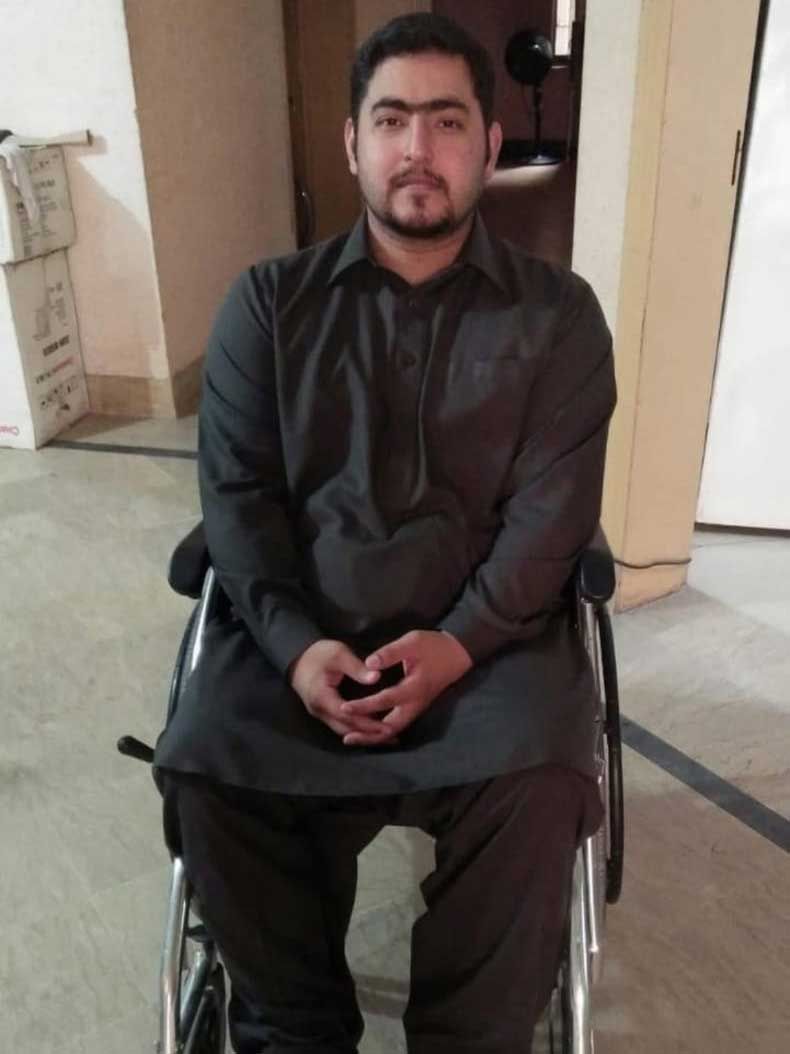
How would you like to change our country to be more understanding, kinder to people with disabilities?
My request to the government of Pakistan is that the job quota announced for special persons must be audited. A proper audit that shows whether people who have applied for a job got the job or not. A rule should be made, be it government or private sector, that at least one special person must be employed in a company. What that will do is that seventy-eighty percent special persons, those with degrees, will be able to work. They won’t be a burden on anyone.
My request is also to special persons that they should get out, manage themselves well, look for a job outside their homes. The best way to find a job is to pursue your hobby, something you like to do. Spend time doing that, try finding a job that excites you. Then the chances are you will be successful.
I pray that may Allah have mercy on our people, our nation. May He create ease for all of us. Amen.





